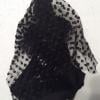Search the Community
Showing results for 'autoimmune'.
Found 1,091 results
-
I never had vomiting with my gallbladder. And the symptoms do sound like that. Regardless of family history the key risk factors are the F's-- fat, female, fair and fertile (child bearing years). And yeah ct scan can't see sludge. My daughter has EDS and while I know there are digestive issues involved (and she has some) it's rarely the acute symptoms you describe. As for celiac, you know they can't test for that when you are gluten free. And there is a simple blood test these days to look for it (my understanding is it still has to be confirmed but it's a strong indicator with this simple test.) Have you seen a rheumatologist? They are the ones who might be able to connect the dots--celiac, EDS, autoimmune. But the gallbladder seems like the culprit to me!
-


Anyone from Houston, TX?
Smjnranrk replied to Elyse519's topic in PRE-Operation Weight Loss Surgery Q&A
Awesome! I have ZERO trouble avoiding meats. I was a vegetarian for a really long time, but I was the kind of vegetarian that would load up in starches (Mac n cheese, Pasta, etc.) instead of veggies. Even pre-op, I've only eaten chicken. I don't remember the last burger or steak I had...it could be never! I get so discouraged by my nutritionist's plan for significant amounts of meat first, THEN veggies. I'd so much rather fill up on Beans and vegetables. I actually have an autoimmune disease that responds very well with no gluten, so I've had to eliminate most of that, too. I'm really hoping that the post-op diet I'm on right now will reset me for a cleaner way of eating in the long run. I do loooooove good cheese, though! Sent from my iPad using BariatricPal -


Sleevers with Rheumatoid Arthritis
Luigi5144 replied to dlm59's topic in Gastric Sleeve Surgery Forums
I haven't been sleeved, yet. I am just beginning my journey. I have my surgeon consult on 6/30 and I will start my 3 month weight management the same day. I just have to weigh my exact weight on the day on consult to qualify as 40+ bmi, so that my insurance will cover the surgery. Anyway, I also have RA, Lupus, Sjorens, and antiphospholipid antibody syndrome. Right now, I'm just on Imuran for the lupus/RA/Sjogrens and I'm on eliquis for the ASP. all autoimmune. The lupus/ RA have played a major part in my not-so-active lifestyle. I am a special needs Mama, and honestly, after I've taken care of him, I'm just give out. I know that lupus/ra etc, won't be cured by the weight loss from surgery. I just hope that by losing the weight, I've done everything I can do to not add to the risks I face from these diseases. My special needs son is going to need his Mama for many many more years. My mother passed away the day after her 48th birthday. I was 24. I don't want the same story ending. -
Hello I have been on prednisone for a month now. 20mg day thats a pretty small dose I guess. I have gained 4lbs. I'm trying to just maintain my weight I know losing at this time is a battle I don't think I'll win. I must say though this medication has helped my symptoms greatly. I have a rare autoimmune disease of the skin and mucus membranes. I had awful mouth lesions and the drugs have worked. You have to weigh out the pros and cons for you for me the fews lbs have been worth it to feel soooo much better. I thank good I have my band I think that is my saving grace or I think I would have ballooned up by now. Good luck to you.
-


Long term ( 20 years ) and developing autoimmune symptoms?
Eveband posted a topic in LAP-BAND Surgery Forums
I have had my band for almost 20 years. Aside from a port replacement 6 years ago, I have been very happy. i reached my goal weight , all good. about a year ago I developed odd neurological/ autoimmune symptoms. Vision, dizzy , tired, confusion, rash etc then two weeks ago, my band slipped, I had gained about 15 pounds in the last 6 months. After 7 days of total restriction ( no food or water getting through) my port was removed in by emergency surgery, the band will be removed in a week or two. My question is , are the two issues related ? I have been to many docs about my neuro / immune symptoms and they are baffled . It seems so odd my band would do this at the same time ? -

Lapband Information -Just to bookmark this information
Tiffykins posted a blog entry in Just another day. . .
http://www.lapband.com/en/learn_about_lapband/safety_informa tion/ Patients can experience complications after surgery. Most complications are not serious but some may require hospitalization and/or re-operation. In the United States clinical study, with 3-year follow-up reported, 88% of the 299 patients had one or more adverse events, ranging from mild, moderate, to severe. Nausea and vomiting (51%), gastroesophageal reflux (regurgitation) (34%), band slippage/pouch dilatation (24%) and stoma obstruction (stomach-band outlet blockage) (14%) were the most common post-operative complications. In the study, 25% of the patients had their band systems removed, two-thirds of which were following adverse events. Esophageal dilatation or dysmotility (poor esophageal function) occurred in 11% of patients, the long-term effects of which are currently unknown. Constipation, diarrhea and dysphagia (difficulty swallowing) occurred in 9% of the patients. In 9% of the patients, a second surgery was needed to fix a problem with the band or initial surgery. In 9% of the patients, there was an additional procedure to fix a leaking or twisted access port. The access port design has been improved. Four out of 299 patients (1.3%) had their bands erode into their stomachs. These bands needed to be removed in a second operation. Surgical techniques have evolved to reduce slippage. Surgeons with more laparoscopic experience and more experience with these procedures report fewer complications. Adverse events that were considered to be non-serious, and which occurred in less than 1% of the patients, included: esophagitis (inflammation of the esophagus), gastritis (inflammation of the stomach), hiatal hernia (some stomach above the diaphragm), pancreatitis (inflammation of the pancreas), abdominal pain, hernia, incisional hernia, infection, redundant skin, dehydration, diarrhea (frequent semi-solid bowel movements), abnormal stools, constipation, flatulence (gas), dyspepsia (upset stomach), eructation (belching), cardiospasm (an obstruction of passage of food through the bottom of the esophagus), hematemsis (vomiting of blood), asthenia (fatigue), fever, chest pain, incision pain, contact dermatitis (rash), abnormal healing, edema (swelling), paresthesia (abnormal sensation of burning, prickly, or tingling), dysmenorrhea (difficult periods), hypochromic anemia (low oxygen carrying part of blood), band system leak, cholecystitis (gall stones), esophageal ulcer (sore), port displacement, port site pain, spleen injury, and wound infection. Be sure to ask your surgeon about these possible complications and any of these medical terms that you dont understand. Back to Top What are the specific risks and possible complications? Talk to your doctor about all of the following risks and complications: Ulceration Gastritis (irritated stomach tissue) Gastroesophageal reflux (regurgitation) Heartburn Gas bloat Dysphagia (difficulty swallowing) Dehydration Constipation Weight regain Death Laparoscopic surgery has its own set of possible problems. They include: Spleen or liver damage (sometimes requiring spleen removal) Damage to major blood vessels Lung problems Thrombosis (blood clots) Rupture of the wound Perforation of the stomach or esophagus during surgery Laparoscopic surgery is not always possible. The surgeon may need to switch to an "open" method due to some of the reasons mentioned here. This happened in about 5% of the cases in the U.S. Clinical Study. There are also problems that can occur that are directly related to the LAP-BAND� System: The band can spontaneously deflate because of leakage. That leakage can come from the band, the reservoir, or the tubing that connects them. The band can slip There can be stomach slippage The stomach pouch can enlarge The stoma (stomach outlet) can be blocked The band can erode into the stomach Obstruction of the stomach can be caused by: Food Swelling Improper placement of the band The band being over-inflated Band or stomach slippage Stomach pouch twisting Stomach pouch enlargement There have been some reports that the esophagus has stretched or dilated in some patients. This could be caused by: Improper placement of the band The band being tightened too much Stoma obstruction Binge eating Excessive vomiting Patients with a weaker esophagus may be more likely to have this problem. A weaker esophagus is one that is not good at pushing food through to your stomach. Tell your surgeon if you have difficulty swallowing. Then your surgeon can evaluate this. Weight loss with the LAP-BAND� System is typically slower and more gradual than with some other weight loss surgeries. Tightening the band too fast or too much to try to speed up weight loss should be avoided. The stomach pouch and/or esophagus can become enlarged as a result. You need to learn how to use your band as a tool that can help you reduce the amount you eat. Infection is possible. Also, the band can erode into the stomach. This can happen right after surgery or years later, although this rarely happens. Complications can cause reduced weight loss. They can also cause weight gain. Other complications can result that require more surgery to remove, reposition, or replace the band. Some patients have more nausea and vomiting than others. You should see your physician at once if vomiting persists. Rapid weight loss may lead to symptoms of: Malnutrition Anemia Related complications It is possible you may not lose much weight or any weight at all. You could also have complications related to obesity. If any complications occur, you may need to stay in the hospital longer. You may also need to return to the hospital later. A number of less serious complications can also occur. These may have little effect on how long it takes you to recover from surgery. If you have existing problems, such as diabetes, a large hiatal hernia (part of the stomach in the chest cavity), Barretts esophagus (severe, chronic inflammation of the lower esophagus), or emotional or psychological problems, you may have more complications. Your surgeon will consider how bad your symptoms are, and if you are a good candidate for the LAP-BAND� System surgery. You also have more risk of complications if you've had a surgery before in the same area. If the procedure is not done laparoscopically by an experienced surgeon, you may have more risk of complications. Anti-inflammatory drugs that may irritate the stomach, such as aspirin and NSAIDs, should be used with caution. Some people need folate and vitamin B12 supplements to maintain normal homocycteine levels. Elevated homocycteine levels can increase risks to your heart and the risk of spinal birth defects. You can develop gallstones after a rapid weight loss. This can make it necessary to remove your gallbladder. There have been no reports of autoimmune disease with the use of the LAP-BAND� System. Autoimmune diseases and connective tissue disorders, though, have been reported after long-term implantation of other silicone devices. These problems can include systemic lupus erythematosus and scleroderma. At this time, there is no conclusive clinical evidence that supports a relationship between connective-tissue disorders and silicone implants. Long-term studies to further evaluate this possibility are still being done. You should know, though, that if autoimmune symptoms develop after the band is in place, you may need treatment. The band may also need to be removed. Talk with your surgeon about this possibility. Also, if you have symptoms of autoimmune disease now, the LAP-BAND� System may not be right for you. Back to Top Removing the LAP-BAND� System If the LAP-BAND� System has been placed laparoscopically, it may be possible to remove it the same way. This is an advantage of the LAP-BAND� System. However, an "open" procedure may be necessary to remove a band. In the U.S. Clinical Study, 60% of the bands that were removed were done laparoscopically. Surgeons report that after the band is removed, the stomach returns to essentially a normal state. At this time, there are no known reasons to suggest that the band should be replaced or removed at some point unless a complication occurs or you do not lose weight. It is difficult, though, to say whether the band will stay in place for the rest of your life. It may need to be removed or replaced at some point. Removing the device requires a surgical procedure. That procedure will have all the related risks and possible complications that come with surgery. The risk of some complications, such as erosions and infection, increase with any added procedure. LapSf Study that I swiped from MacMadame's profile LapSF Educational presentation to FACS - includes some 2 year results LapSF Two Year Study LapSF Five Year Study - abstract only LapSF Five Year Study - presentation (requires Windows to play) Literature review on the sleeve - requires $ to get the full text unfortunately Sleeve best for over 50 crowd Video of a sleeve with lots of education discussion Video of a sleeve that is more about the operation Ghrelin levels after RnY and sleeve Ghrelin levels after band and sleeve Diabetes resolution in RnY vs. Sleeve Comparison of band to sleeve - literature review -
I have this problem. I'm not an overeater. I eat very carefully and about 1200 calories a day. I get exercise. I don't binge. I drink water. I gained 60 lbs in one year when I was about 16 and the weight has done nothing but go up ever since. No one could tell me why. My diet and activity level didn't change. The best they could guess is it was my thyroid but those levels were normal until my 30s. I did develop an autoimmune disease at 14 though and it could have contributed inflammation. I became diabetic a few years ago and have steadily climbed to over 300 lbs. At this point doctors say it is inflammation and metabolic disorder that was probably subclinical for years. Some of the weight is definitely med related and now Im physically disabled which contributes too. All this to say not everyone who gains weight has an eating disorder but it's rare and doctors will have no clue what to do with you! With the extra weight you should qualify for surgery, right?? I wish you the best of luck. I'm halfway through my pre-op diet and true to form my body hasn't lost a pound. 😂
-


Lonely in Sleeveland
gingeryank replied to gingeryank's topic in Tell Your Weight Loss Surgery Story
It's funny. I teach online, but I wouldn't describe myself as an online/social media enthusiast. I feel like I need to become one insofar as I need to be part of a community. I also have a genetic autoimmune disease, AS, and would love to connect with others with chronic diseases/pain. I have an excellent psychologist. I guess I forgot that important detail. She's especially helpful in pointing out my husband's control issues and showing me how to retain my autonomy and freedom (and joy!) in the midst of them. I see her weekly, but most recently, she's given me the gentle push to branch out and meet people. I'm so used to hiding--mainly due to my weight--so this step will be important for me. Congrats on being 19 months post op! Can't wait to be there. Sent from my iPhone using the BariatricPal App -


Typical chick reactions to my plans for VSG
Teachamy posted a topic in Gastric Sleeve Surgery Forums
So I will be sleeved in December, and I have been sharing my plans with a few female friends. My decision to have the surgery was mainly Type I Diabetes, sleep apnea, Transverse Myelitis, asthma, high cholesterol high BP, etc. etc. This surgery will help my blood sugars, which will help my cholesterol, lower my dependence on BP medications and asthma meds and possibly thyroid meds., eliminate my sleep apnea and stress incontinence, I AM READY! My friends, being chicks, listen to me talk about my comorbitites/autoimmune issues and then say, "No fair! You're going to be skinnier than me!" REALLY? THAT is your reaction? Unreal. -
Hi Amy~ I have Crohns disease ( an autoimmune disorder). My doc said she would never ever ever do GB on me, but that the band would be perfectly safe. No issues in one year !
-
The genetic theory does not apply to me. I was Slim all my life till 2014. You can check my photos in my Gallery. I also suffer from depression on and off, and never gained weight because of it. My Graves Disease (autoimmune thyroid disorder) did 180 degree turn 2 years ago, I piled on weight 2014-early 2016, yet my Endo says that Graves contributed about 25% to my weight-gain, rest was my unhealthy eating during those 2 years. I gained 90Ib in 2 years due to eating loads of chocolate and fatty foods, and stopped even going for walks, let alone exercise. I have lost 70Ib so far, and nearing goal weight, albeit slower 8 months post op. If genetics were true, and even Graves Disease where you have high metabolism and can eat almost anything without putting on weight, I would have never gained this 90Ib! I wish ......
-


1 week post op! First post
losinglily replied to Padp's topic in Tell Your Weight Loss Surgery Story
Congrats! It's awesome that you have your daughter for support. What autoimmune issues do u have? I have RA. I'm 2 1/2 weeks out, and everything has been great. [emoji3] -
Hi there, I hear you, the shakes even 2 times a day are boring!! In between is a jello or ice pop....today I am doing better at getting water down, and I hade real Coffee!!!!!!!!!! I tried decaf..it ain't happening LOL !! I still get tired, I also have an autoimmune disease... Fortunately I am retired. My daughter needed a full 2 weeks or so to go back to work when she had it... What soups do you use???? Tonight I have soft food for dinner again, after last nights mayhem, I am going to try ricotta left at room temp. I can't take the cold!!!! I'm so glad we are communicating !
-


something apropros Oprah said once--re: "the easy way out"
srpiccollo replied to TES's topic in POST-Operation Weight Loss Surgery Q&A
Being supportive isn't just living with someone and dieting with them every once in a while. My husband ha beyond supportive and here are sine basic things he did for me: 1. what I eat he eats when we are around each other. I am 7 weeks out and he still does this. When he is at work or out on his own then he indulges. I keep saying it is not needed but he said if it helps me only 5% it is worth it. I am on regular foods now so it isn't a big deal since we eat baked fish at least once a day and don't eat junk food. 2. He walks with me after dinner a few times a week. I work out daily in the morning but those are great bonding times and we both get exercise. There are so many other things like not buying any junk food or bring it in the house, planning outings were we get exercise in, etc. The bottom line is maybe thinking of all his past failures is rubbing off in him. Maybe he is lazy and doesn't want to try to try too hard. But being there for a loved one who is dealing with this means NOT judging. On things in the past or even last night. Offer to help and help in any way you can without saying a word to him. If he doesn't take it or do the correct things then it is his fault he is not using the tool he has. That is on him and him alone. The other thing is why are you on this site and not him? I get your trying to understand and all but honestly unless you have struggled with this demon like we have you can not ever totally understand. People can explain it to you till they are blue in the face but it can't make sense to you. I have one more thing to toss out. I have 5 autoimmune disorders. Since they wreck my body from the inside and attacked my metabolism making it not functioning no diet in the world would work for me like this has. We all have different reasons for needing this surgery and implying it is because we "let ourselves go" is just ignorant. I'm glad you couldn't let yourself get beyond 30 pounds over the weight you wanted. Good for you but for some of us it was a medical issue or maybe simply we didn't notice how bad it was until it was 100 pounds over. Everyone is different and my heart goes out to each person for doing this for what ever reason. I think good for them for taking a chance to hopefully save their life. In proud if my fellow sleevers and proud of Rick for doing it. Are you? Does he know if you are? How are you showing it? These are things you might want to look it. That's my 2 cents. Take it or leave it. -


Lap Band vs. the Sleeve
DELETE THIS ACCOUNT! replied to tamarlarae's topic in PRE-Operation Weight Loss Surgery Q&A
Ok I am copy/pasting exactly what I put on your other thread. It is NOT all autoimmune diseases so please stop incorrectly telling people that; --------------------------------------------------------------------- Again, that's not true. It doesn't say ALL autoimmune diseases, it says connective tissue diseases. Directly from your link: "You or someone in your family has an autoimmune connective tissue disease. That might be a disease such as systemic lupus erythematosus or scleroderma" Not all autoimmune diseases are connective tissue diseases, in fact the majority of them are not. Their warning does not cover all autoimmune diseases. -
Sorry to post so late on such an old thread. I went into the hospital with pretty mild type 2 diabetes. I had had it for about 7 years. I was managing it extremely well with diet and metformin and my A1C (3-month average blood glucose level, which is measured by counting the number of hemoglobin in a blood sample that is damages by high blood glucose) was always between 5.7 and 6.0. My fasting blood glucose was usually around 5.5 mmol/l (99 mg/dl) which was considered very good for a diabetic. One of the things that tipped me over the sets to get surgery is that I started sometimes seeing two-hour post-meal glucose readings over 9 mmol/l (162 mg/dl). Not often and not enough to raise my A1C but enough to make me feel worried and insecure. Without surgery I did not have the self control to keep my carb load low enough to ensure this would never happen. I left the hospital the second day after my surgery. Since my surgery I have never taken metformin and never seen a fasting glucose level over 4.7. I have never seen a two-hour post-meal glucose level over 4.5. This was not a gradual thing but happened immediately after surgery. It may not be permanent. I am almost 8 months post-op now. I eat about 1000 calories a day and have about 100-120 grams of carbs a day. This is extremely common with the sleeve (which I have), the bypass, and the DS. I don't know about plication but as far as I know it doesn't happen with the band. There are some theories about why it happens and about why it stays around at least for a while. The science is not definite yet. Why it happens (maybe): 1. You are basically in a fasting state from 8 hours before surgery to two days afterward. Even when you do eat again, the calories and carbs are so low that there is virtually no load on your pancreas. 2. There are tons of hormones and chemicals that get produced in and act on your stomach and intestines. Surgery may temporarily or permanently disrupt some of them. 3. Maybe this happens because your body is in a bit of shock. Why it stays around at least for a while (maybe): (bandsters would also get this part of it) 1. Your calorie and carb intake stay very low for a significant amount of time. Your Protein intake is probably the highest it has been in your life if you are following the rules. This type of diet makes your cells more responsive to insulin and also reduces the load on your pancreas. 2. Fat produces estrogen, especially belly fat. Even in men. Estrogen and insulin are related. As your estrogen levels get lower, your cells also get more responsive to insulin (less insulin resistant). This means it takes less estrogen to do the job. Less insulin means it is harder to store fat and easier to burn it. This sets up a virtuous cycle. 3. As you lose weight, you are more likely to be physically active. Exercise also makes your cells more sensitive to estrogen! Having diabetes at all means that your pancreas is not perfect. That is why some people do re-acquire diabetes later on. But any respite is great for your health, and losing weight can also "cure" some type 2 diabetics. If you get it again later, it doesn't mean you did anything wrong. If you don't, you are fortunate. By the way, bariatric surgery won't ever cure type 1 (autoimmune) diabetes. But it can make heavy type 1s lose weight, and make their bodies less resistant to insulin too. That means they may be able to reduce the amount of insulin they need to use, which means that they may find it easier to stay slim!
-


Taking medications with Lap Band
RestlessMonkey replied to livtobeblessed's topic in PRE-Operation Weight Loss Surgery Q&A
Mary I don't think malabsorption was the issue specifically, because my surgeon said if any of us had an autoimmune disease, we would be candidates for RNY or sleeve gastrectony (and RNY has malabsorption built in) but rather rejection-type issues. Of course the band doesnt convey any malabsorption, it just slows things down (which actually would seem to improve it, wouldn't it?) I am sure if the OP's surgeon is proceeding he has his own good views on the issue; just better to check and find out what they are etc. Especially if she's self pay; she doesn't want to have to have it removed because of some issue that could've been prevented. -


Just found out I am having my surgery next week!!!!
lotsofkids replied to shell04937's topic in LAP-BAND Surgery Forums
shell....that's what my husband felt..(he's a pediatric cardiologist) and the other docs were thinking also.....especially because of the shortness of time / proximity to the lapband surgery. It seems right around 10 days pericarditis can develop after a surgery of any sort. And it probably was the result of my surgery....but we can never say for sure.....but in the big picture.....I really can't get upset over having the lapband surgery.....because, if this domino effect of mega health problems didn't start.....then I would have suddenly dropped dead from the moyamoya. So, in essence.....it saved my life....even if it probably was the catalyst for the Pericarditis. (in my opinion, the moyamoya had been developing in the background for at least 5 yrs...according to the sx's I were complaining about and experiencing) anyhow.....warm wishes to you.....and I will have you in my thoughts and prayers during your surgery. Are they comfortable with your autoimmune disorder and having the surgery? Well, I am sure they worked you up quite a bit!!!! Now....go and start taking your first skinny steps! diane : ) -
It not's just about feeling full, its also to avoid washing food out of your stomach too quickly which then stops you feeling the restriction that WLS is to suppose to bring. I have an autoimmune issue, I don't produce a lot of saliva and have a very dry mouth. For the most part I don't have issues not drinking while eating and not drinking for 30 minutes after a meal. Sometimes I do need a small sip to help something be swallowed but the majority of the times I am fine. You'd be surprised what new habits develop. 99% of the time, when I am at home and work I look at the time when I have finished my last bite of food, add 30 minutes and that's when my next drink is, even 18 months down the track. If I am out having dinner, I will likely have a few sips of wine while eating.
-


Celiac disease diagnosis years after RNY
KyHiker replied to Brandy36's topic in Gastric Bypass Surgery Forums
I feel like I found my peep in you, Brandy. So it sounds like you and I have some similarity in our journey. I have a few recommendations for you that have helped me immensely. #1 read Hashimoto's, The Root Cause by Isabella Wentz. I felt like she explained my entire medical history. You may also consider The Paleo Approach, Reverse Your Autoimmune Disease and Heal Your Body. There's more out there too. The blog SCDlifestyles is worthy and I keep getting recommendations for The Body Ecology Diet, which I haven't read. I went off gluten because my doc told me to and I felt bad enough to do it. And she recommended Wentz's book. Going off gluten I found out why I had choking spells since college. That said, going off gluten was hell, so I did the radical jump start with the amino acids that Wentz describes in the book, and my gut hasn't been this calm since I was a child, and I am not exaggerating. I'm now on a healing diet and admittedly a bit lost. I'm going to do some Alletess testing (food intolerance testing) and more research. Haven't been able to add many foods, so going to test vs elimination diet. I'm still working through things, but I feel empowered and hugely improved. A year ago I had chronic fatigue so bad I didn't do squat and every joint hurt, and for awhile my hand hung as if dead. I'm 51 and I get where you're coming from about feeling 80+. But 4 months into a radical diet and I'm getting closer to my age, but about 15 years to go, wink. The the resources I provided are riddled with references to current research, but much of it is not known or embraced widely by allopathic medicine. Me, I'm just going for results, and radically changing my eating is giving me results. As Schoolass mentioned, when you eliminate foods that cause you problems, eating them again will amplify the problems, which is motivation to give them up! Keep your chin up and do your own research. I asked docs for 10 years and got nothing. Then I got sick enough to go to the internet and take responsibility for my own healing, and now I have hope. I didn't find that doc who told me about the gluten and Wentz book until I started my own research. I trust you will feel better if you work it. -
I mean lung disease is a vague term. For example many bariatric patients have sleep apnea, which is technically a lung disease. And theyre encouraged to get bariatric surgery to improve it. I think the severity of it will play a part too. Its certainly not completely contraindicated. I have had patients who came in for lung surgery with plans to come back for bariatrics later in the year. Just an educated guess, but I would think the major determinant would be if bariatric surgery will impair your ability to successfully treat your autoimmune lung disease in the long term (ie frequent use of steroids). But I think the odds are it wont be much of an issue
-
I was in your place 9 wks ago..I did all the prep over the yrs an this spring 2 of my specialists referred me to the surgeon. I guess I was in denial bc I never dreamed I qualified for insurance approval. But with my hashis an several autoimmune diseases I had put on 55 pds in 4 months...ugh. .sure enuff I went thru all preop requirements. .my last 2 wks I was on protein shakes 1 balanced meal a day then 48 hrs of strictly protein shakes..I have been thru several brands of protein by my wk 3bc I was gagging! Over th www thought of another protein shake..I seen some options on here an one I tried was the nectar brand..(I believe) it has different flavors u can get a variety pack an I ushered it to help get my 64 oz water in an the flavors aware packed with protein. ..their w not thick. .just like drinking water but u get it all...oh..I also used the chike protein brand also...an of course I had the pure protein. .I turned tried the Atkins an it to me it was nasty..it upset my tummy needless to s aww y I threw them out! I remember myself being in a ball of nerves my few days before. .my anxiety got to me..I was over thinking everything too! I was more then ready or I wouldn't have gone thru all the preop requirements. I trusted my surgeon, my drs, I new the protocol an I knew the risk. It was like well I'm not going to have much of a life fat..so I'm doin this! My surgeon an specialist all said the benefits out way the risk...surgeon told me just get thru first month..u will do great . The head will play games...hang in there...call ur surgeon if u need to..I stayed 2 days I couldn't get much water down. So I stayed to get Iv fluids. ..by that second night I was ready to go home..just take one day at a time. Ur preop staff are experts also postop staff..they'll take excellent care...they fix you up in preop an when u get relaxed it'll b over an wake up... u got this! ! Hang in there..I gained 8 pds from surgery an fluids. .don't b alarmed! It will come off!! I did stall for several wks at 3 wks out..don't get discouraged. .ur body is trying adjust to major surgery. ..be easy on yourself. .come here...luv this site. .be sure to take it measurement. Pics. .try not worry..this is ur new second chance. ..I'm 8 wks out an 62 down...I'm not even caring anymore just strictly stick to ur protocol. .trust. .it work!!!! Keep us posted!!
-
Well, you need more water. You may be slightly dehydrated which could explain the headaches. Also, your protein is incredibly low. My protein drink alone has 32 gm's in it, and that is just one. By 15 weeks post op you really need to get that protein in now that you can! You are under the recommendations at just 45g a day. Also, have you considered a certain type of food you may be eating causing your headaches? I know that nightshades or eating more carbs or starches than protein can do it for some people, it's almost autoimmune. Good luck, and stay well!
-


Pcos, Hashimoto's, insulin resistance
Hanhan replied to Vsgneeded's topic in PRE-Operation Weight Loss Surgery Q&A
Hi, I had a vsg on 28th Feb 2017. My bmi was about 53 at it's highest, and it's now about 41. I also have autoimmune hypothyroid and PCOS, and I was also worried that I would loose weight even with the vsg. But I am! After the initial quick weighloss over the first few weeks my loss has slowed down to about 1-3lb per week, which is on the slower side. However I'm really happy with my progress and just happy to see the weight dropping off. Plus I think slower weight loss is healthier and better in reducing loose skin, so I'm actually pleased it's a bit slower. In regards to my PCOS, I had a period fairly soon after starting my pre-op diet (first in about 100 days!), then had another one 26 days later! For a fleeting moment I thought the surgery might have cured my PCOS (as I've heard it can instantly cure diabetes), however I'm now on about day 60 of this current cycle, so no instant cure, but I'm sure the weight loss will help. good luck with your surgery, I'm so so happy I went through with mine. -


Serious Teeth problems after gastric bypass several years ago???
Prestonandme replied to Grammie2's topic in General Weight Loss Surgery Discussions
Definitely not autoimmune issues, GERD, stomach acid problems, or medication effects. Those have been ruled out. My calcium levels are within normal range. The surgeon and the dentist do not know why I began having dry mouth issues just days after surgery.













